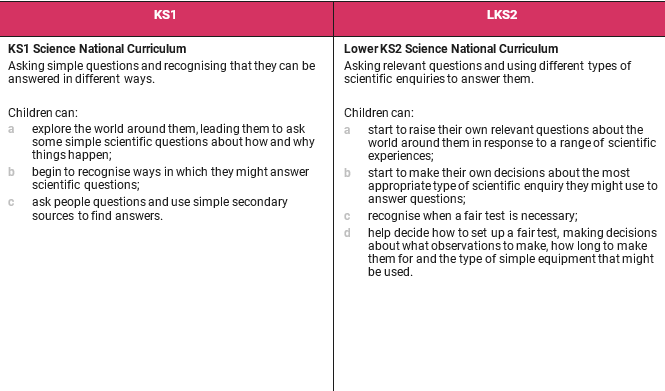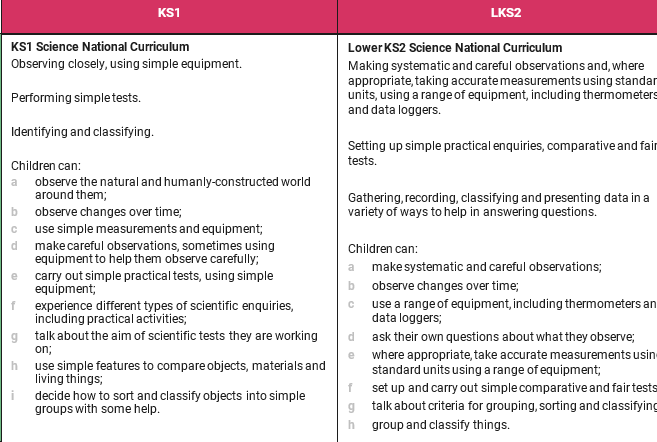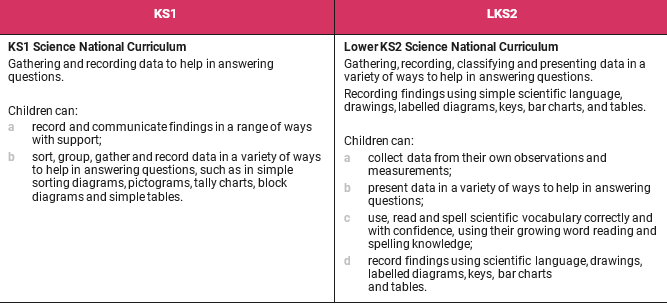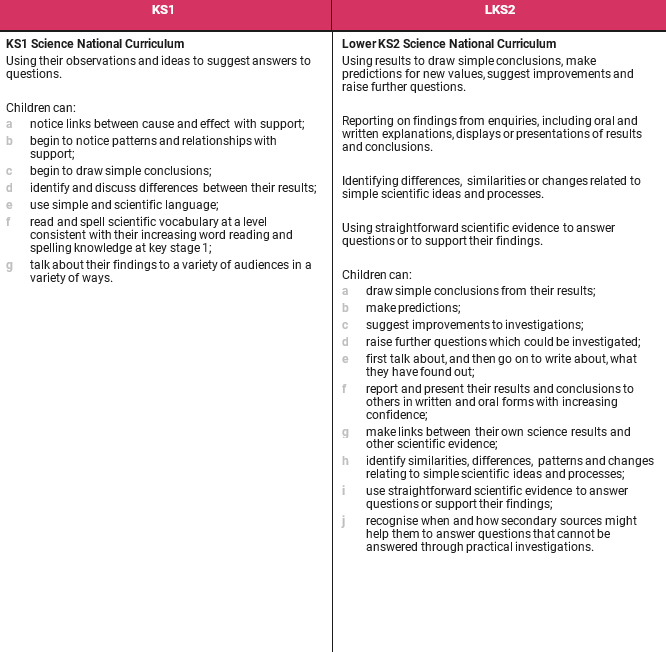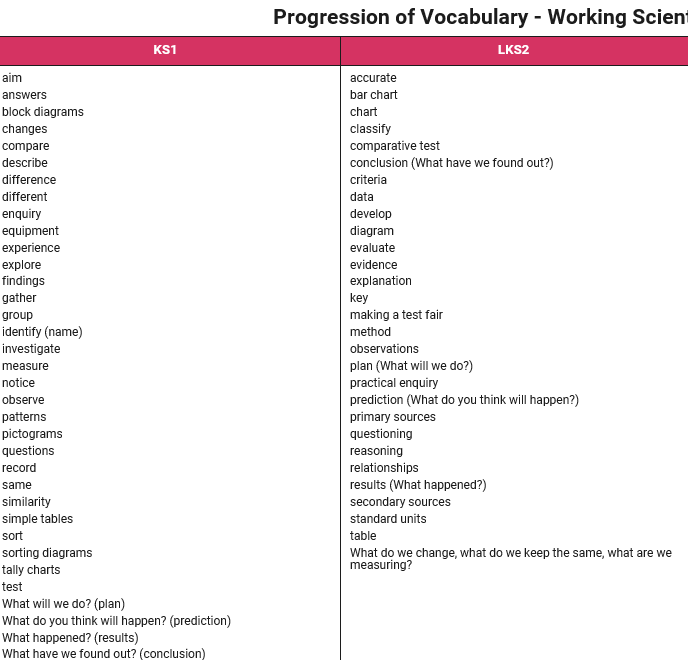Intent
Our provision is designed to develop all young people a lifelong curiosity and interest in sciences. We aim to develop pupil’s natural excitement and inspire them to pursue scientific enquiry now and in further life. When planning for the science curriculum, we intend for pupils to have the opportunity, wherever possible, to learn through varied systematic investigations, leading to them being equipped for life to ask and answer scientific questions about the world around them. As pupils progress through the year groups, they will develop greater independence in planning and carrying out fair and comparative tests to answer a range of scientific questions. Pupils should work scientifically by investigating, explaining and analysing phenomena, making predictions, questioning the world around them and solving problems. Our scheme of work ensures that children have a varied, progressive and well-mapped-out science curriculum that provides the opportunity for progression across the full breadth of the science national curriculum for KS1 and KS2. Science is vital to our future prosperity and it is important that our children are engaged with all aspects of science.
At Chollerton First School we believe that all children should be offered opportunities to take part in knowledge rich science lessons. We aim to ensure that our curriculum ensures that children learn science knowledge (Substantive) but also that all the strands of working scientifically are covered in each year group throughout the year. The children will learn the skills to access science lessons confidently, they will learn the disciplinary knowledge to be a 'scientist.' We want to provide the children with opportunities for independent as well as collaborative learning, working together to gather evidence and discuss ideas. As children progress through their year groups they will build on; their skills in working scientifically and their scientific knowledge. They will develop greater independence in playing and carrying out fair and comparative tests to a range of scientific questions. The children will work scientifically by investigating, explaining, analysing, making predictions, questioning the world around them, and solving problems.
The importance of science has been raised due to the Covid pandemic so we intend to present science as a lesson that is relevant and can make a difference as well as improving the children's well-being by providing opportunities to take part in lessons outside making use of the school grounds. We want to introduce scientists to the children, both famous scientists from the past, women scientists, scientists from a range of ethnic backgrounds as well as scientists working locally and within the families of our school opening the eyes of the children to future careers in science. The Science Capital of the children will be increased by providing science activities which support our learning. Taking part in visits that promote science and visitors to the school for example Newcastle University and The Royal Institute of Science in London. We intend to supplement our curriculum and take advantage of opportunities when available for example this year we have worked with students from Newcastle University, ‘Cap-a-pie’, addressing issues on climate change.
Implementation
We follow the National Curriculum as the basis of our curriculum and are ensuring that the children are provided with a progressive sequence of learning. The scheme we use is supplemented by additional resources that provide opportunities for discussions so we ensure that the children develop their understanding of science concepts but also develop the skills to work like scientists. In the Foundation Stage Science is taught as part of the Area of Learning “Understanding of the World” and is approached in a holistic style involving lots of “hands on” activities that place scientific concepts firmly within an everyday context. Children are encouraged to learn to observe objects and events carefully and talk about their findings using accurate descriptive vocabulary. This learning often takes place in our outdoor provision. Teachers are supported to develop their own knowledge of science by the Science Lead who directs them to websites and activities that will engage the children.
We are working with Hexham Partnership to ensure progression of skills and knowledge. Children are provided with practical activities in small groups with enough equipment so all children can participate. Stories can be used in Key Stage 1 as a hook and classrooms have the current topic words displayed.
Our curriculum addresses three main areas:
- Knowledge: what do we want our children to learn and remember? How do we sequence learning to ensure progression? We develop scientific knowledge and conceptual understanding.
- Concepts; develop understanding of the nature, processes and methods of science through different types of scientific enquiries. We cover each area of the National Curriculum.
- Skills; we consider which skills help the children understand content. We help the children develop the essential enquiry skills to deepen their knowledge and engage in life-long science.
- EYFS Pupil’s interests are followed without explicitly teaching content from other year groups. Scientific enquiry is driven by pupil’s own questions and adult-led provocations. The EYFS setting provides a rich language environment for pupils. Adults identify and model scientific vocabulary appropriate for the topic and age, setting high expectations. Impactful use of outdoor learning is embedded and built upon throughout school.
- KS1/KS2 The acquisition of key scientific knowledge is an integral part of lessons. Furthermore, the progression of skills for working scientifically are developed through the year groups and scientific enquiry skills are of key importance. Each lesson has a clear focus. Scientific knowledge and enquiry skills are developed with increasing depth and challenge as children move through the year groups. The sequence of lessons helps to embed scientific knowledge and skills, with each lesson building on previous learning. Activities are effectively differentiated so that all pupils have an appropriate level of support and challenge.
A collective responsibility for our planet is imperative. Pupils are encouraged to ask questions and develop their own line of enquiry. They consider the wonder of the natural world and the inventions that have made it better. Pupils speculate about how science can be used for a variety of reasons or motives.
Impact
We believe that the impact of our personalised, progressive Science curriculum will ensure pupils know more, remember more and explain more. Attainment and progress can be measured across the school. Children who feel confident in their knowledge and enquiry skills will be excited about science, show that they are actively curious to learn more and will see the relevance of what they learn to real-life situations. Our approach results in a fun, engaging, high-quality science education, that provides children with the foundations for understanding the world. Our engagement with the local environment ensures that children learn through varied and first-hand experiences of the world around them. So much of science lends itself to outdoor learning, so we provide children with opportunities to experience this. Through various workshops, trips and interactions with experts, children have the understanding that science has changed our lives and that it is vital to the world’s future prosperity. Pupil voice is used to further develop the curriculum, through analysing pupil’s views and attitudes.
The children in our school enjoy science as seen in their responses to Pupil voice questionnaires and they can talk about science knowledge and enquiries that they carry out. They are learning new substantive knowledge in each year group and our focus this year is to ensure that the children develop the skills to work scientifically (learning disciplinary knowledge) Scientific vocabulary is taught specifically and children love sharing it! Science lessons are planned based upon the children’s existing knowledge which teachers assess at the beginning of each unit and continue to assess. Recording in science is varied and is appropriate to the age of the child, this includes writing, drawings, pictograms, bar charts and labelled diagrams.
Through workshops, trips and interactions with experts, children begin to understand science has changed our lives and is vital for the survival of our planet.

